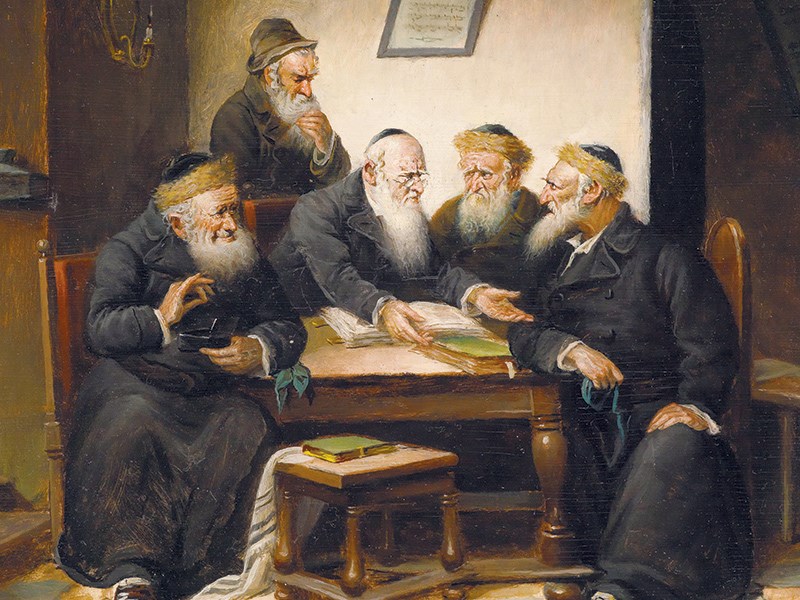Overview: In this article we explain how the Oral Law and rabbinic enactments are not in violation of the prohibition of “adding to the Torah” prohibited in Deut. 13:1.
“Everything I command you that you shall be careful to do it. You shall neither add to it, nor subtract from it.” (Deuteronomy 13:1)
We must understand how the rabbinic legislation, enactments, and interpretations aren’t a violation of adding to the Torah vividly warned against in the verse.
The question only exists for one who views the Oral Torah to be distinctive from the Written Torah. This, however, is not the case. The Oral Torah is the very understanding of the Written Law, without the Oral Law the Written is incomprehensible. As we shall explain soon, the Written and Oral Torah is similar to notes on a lecture. The notes don’t exclude the lecture, but rather the notes and the lecturer complement each-other. Hence, when the Bible says “the Written Law” it inherently includes its oral explanations, and thus they are not regarded as “add-ons.”
Now, in regard to the rabbinic legislations being a transgression of adding: The prohibition of adding, would only be an issue if the law added is held as binding and regarded with the same weight and authority as the biblical laws. This, however, is not the case. The legislations are very distinctive from the biblical laws and are regarded as rabbinic laws. Therefore, there are indeed differences in practice of these two categories. For instance, in a case of doubt, the biblical laws are to be treated more strictly, while by rabbinic laws (usually) more leniently.[i] While we do recognize that God grants this authority to the rabbis (as stated in Deuteronomy 17:8-13), and technically in a sense it is “biblical,” it is obviously distinctive than the direct commands from God and are therefore treated more leniently.[1]
It’s also possible that the prohibition of “adding to the Law” is simply not to add to the physical text of the Torah Law so that it won’t become corrupt. This would of course bear no issue for rabbinic legislation.
[1] Now, although it is “rabbinic” law (in contrast to “biblical”), it is still the will and command of the Lord. That’s why we bless the Lord “who commanded us to do…” before practicing some rabbinic enactments. Despite calling it the will of the Lord and divinely binding, it is of no violation of Deuteronomy 13:1 (which only prohibits adding biblical commandments), just like commanding-prophecies, which are found all over the Prophets, are of no violation of Deuteronomy 13.
[i] Rambam Hilchos Mamrim 1:4, Talmud Avodah Zarah 7a. See also Rambam Hilchos Mamrim 2:9 where he argues that as long as we don’t call the rabbinic legislations as biblical, then we are in safe hands.




